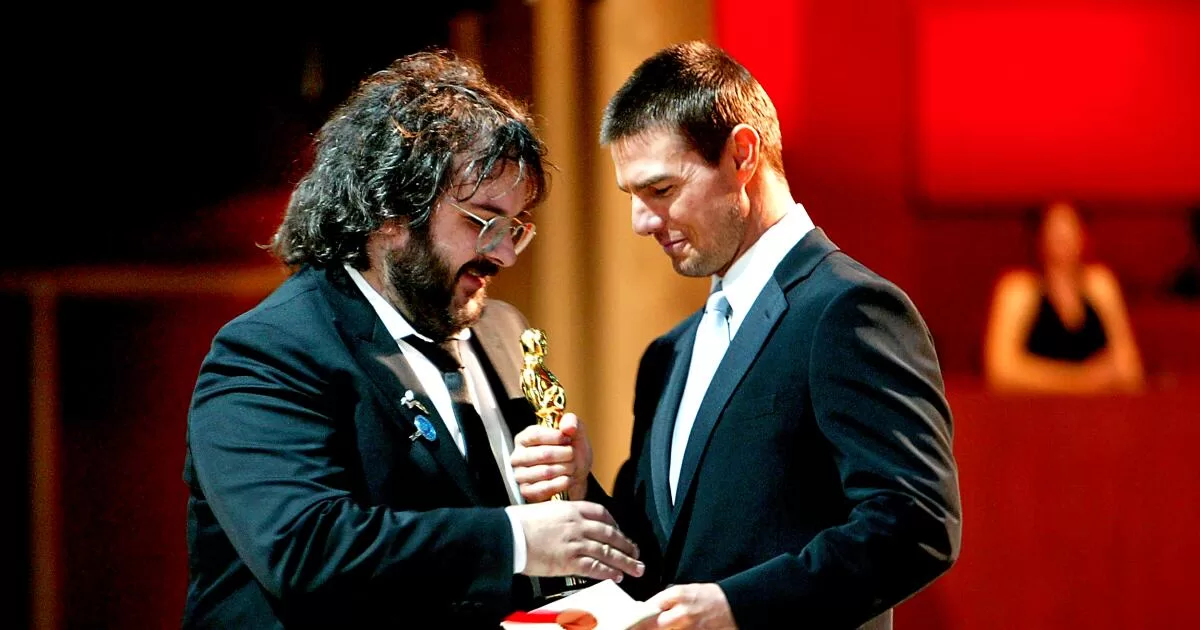It was the film’s 10th Oscar win of the night, and Jackson’s second — he also won (with Fran Walsh and Philippa Boyens) that night for his adapted screenplay. Moments later, he’d get his third, winning for best picture. Jackson, who had been nominated once before for “The Lord of the Rings: The Fellowship of the Ring” in 2002, beat out such directing veterans as Peter Weir and Clint Eastwood and first-time nominees Sofia Coppola and Fernando Meirelles alike. But as with many of the awards “Return of the King” picked up that night, the overwhelming sentiment was that they were being handed out for the sum total of the “LOTR” films, all three of which had been made concurrently.
Jackson accepted the director award from Tom Cruise, then launched into his speech. “Wow,” he began. “Thank you so much to the academy. You’re giving us an incredibly overwhelming night, and we just appreciate it so much. [New Line executives] Bob Shaye and Michael Lynne, God, you did the most risky thing that I think anyone has ever done in this industry, and I’m so happy for you that it paid off. Your collaboration and your partnership and your support just gave me the most incredible working experience of my life…. I just want to thank two very special people — when I was 8 years old I made films at home on a Super 8 camera that my mum and dad had bought for me. And they supported me all through the years. And they died in the last few years; they didn’t see these films made. So for Bill and Joan, thank you.”
Making the trilogy was an undertaking on a massive scale. As Empire magazine reported originally in 2002, the film schedule spanned 274 days across 15 months, featured 350 sets and a crew of 2,000. “I’m totally unfit, but I’m the tortoise guy who can keep plodding on,” Jackson said then. “Mentally, I had days when my brain would feel like it was mush, I felt I had no imagination left. When your imagination starts to lock, you panic. Honestly, there were days when I was just turning to the actors and hoping they weren’t as tired as I was and pointing the camera at them, hoping we were getting good stuff.”
Meanwhile, first-time nominee Coppola could go home soothed that her “Lost in Translation” earned her an original screenplay Oscar. Weir, who directed “Master and Commander: The Far Side of the World,” was on his fourth director nomination (he’d also been nominated for 1985’s “Witness,” 1989’s “Dead Poets Society,” and 1998’s “The Truman Show”). He would become the first Australian to be honored with an honorary Oscar at the Governors Awards in 2022.
Eastwood’s “Mystic River” was the first time he’d been nominated as a director but not won the award; he already had one Oscar for directing “Unforgiven” (1992) and would go on to win another for directing “Million Dollar Baby” later that year. As for Brazil native Meirelles, “City of God” is his one and only Oscar nomination thus far.
